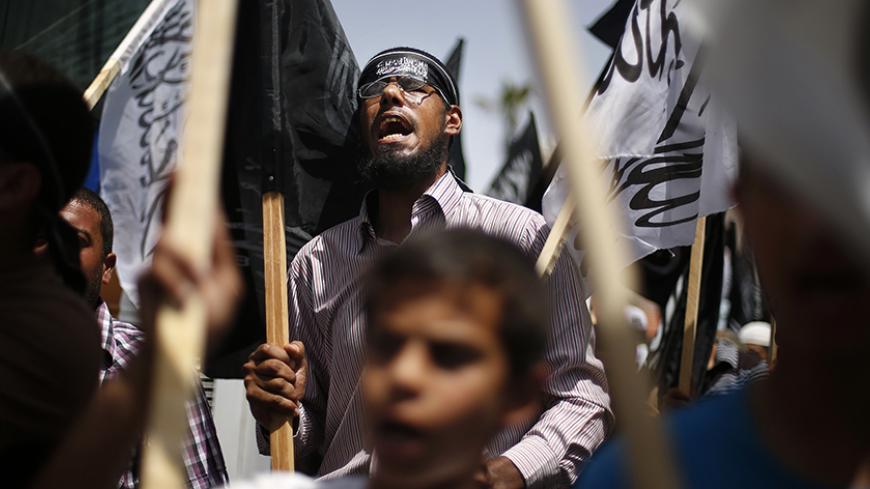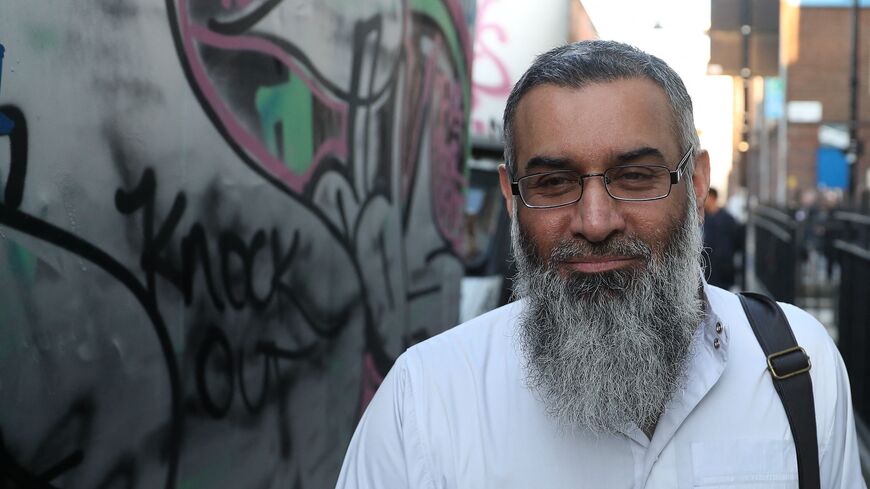What is Hizb ut-Tahrir, anti-Israel Islamist group banned in the UK?
The international Islamist group has been banned across the Middle East and is known for espousing antisemitism.

The United Kingdom designated Hizb ut-Tahrir as a terrorist organization on Friday, after accusing the controversial Islamist group of promoting terrorism and antisemitism amid the Israel-Hamas war.
British Home Secretary James Cleverly submitted an order to parliament on Monday to proscribe Hizb ut-Tahrir under the UK’s Terrorism Act. The secretary called the group “an antisemitic organization that actively promotes and encourages terrorism, including praising and celebrating the appalling 7 October attacks.” Following parliamentary approval, the order came into effect on Friday, the British government said in a statement.
Hizb ut-Tahrir promotes terrorism. It is a vile, antisemitic group.
— James Cleverly🇬🇧 (@JamesCleverly) January 19, 2024
It has no place in our country.
From today, any member of the group - or anyone who invites support for it - will face the full force of the law.
Belonging to Hizb ut-Tahrir is now punishable by up to 14 years in prison, according to the statement.
Hizb ut-Tahrir did not immediately comment on the decision.
What is Hizb ut-Tahrir? Hizb ut-Tahrir is a pan-Islamic organization that was founded in 1953 in Jerusalem. Its name is Arabic for "party of liberation." According to the European Council on Foreign Relations, the group “works on the re-establishment of the caliphate through non-military means."
Hizb ut-Tahrir is global, and much of its current leadership is in the UK and Australia. The group is banned across the world, including in the Middle East. Jordan, Saudi Arabia, Lebanon and Turkey have all outlawed Hizb ut-Tahrir, according to the New York-based Counter Extremism Project.
The organization has hundreds of members in the West Bank but has been “repressed” by the Palestinian Authority, according to the European Council on Foreign Relations. Al-Monitor reported in 2018 that one of Hizb ut-Tahrir’s events in Bethlehem was canceled by the Palestinian Authority after a protest by women’s groups.
Hizb ut-Tahrir’s website includes praise for fighting Israel, as well as hateful language toward Jews. On Oct. 10, three days after the Hamas attack and subsequent Israeli assault on Gaza, Hizb ut-Tahrir referred to the fight against Israel as a “heroic confrontation."
In a Sept. 25 post about the prospect of normalization between Saudi Arabia and Israel, the organization wrote, “It is the duty for the Muslim armies to mobilize to liberate and purify it [Palestine] from the abomination of the Jews, and not for Palestine to be presented to the Jews on a golden platter of normalization, submission, and servility.”
Why it matters: The UK's decision to ban Hizb ut-Tahrir comes amid a rise in antisemitism in the UK and Europe related to the Gaza war. London police said in late October that they had recorded a 1,353% increase in antisemitic offenses that month, Reuters reported at the time. A November poll from the UK-based Campaign Against Antisemitism found that 48% of British Jews have considered leaving the country since Oct. 7 due to antisemitism.
Other European governments have cracked down on pro-Palestinian activism since the war began. In November, Germany banned Palestinian prisoner solidarity group Samidoun after it posted photos on Instagram celebrating the Oct. 7 attack.
France banned pro-Palestinian protests in October after the Interior Ministry said they posed a threat to public order. A French court later ruled that protests must be banned on a case-by-case basis.
Some of the decisions have been criticized. In an October statement, Amnesty International senior research adviser, Esther Major, accused European authorities of “unlawfully restricting the right to protest” in support of Palestinians. Major mentioned France and Germany in the statement.
Know more: Anti-Muslim incidents are also on the rise in Europe. London police said in late October that Islamophobic offenses had risen 120% since the Gaza war began, per Reuters.









